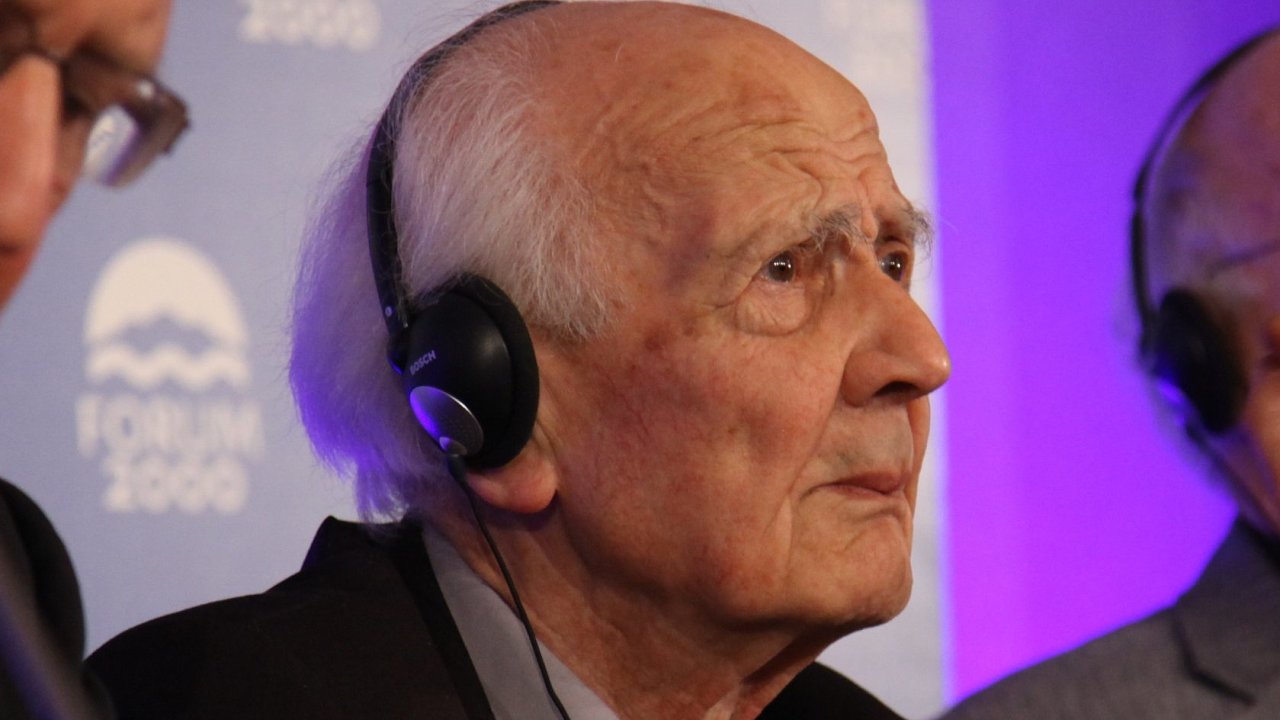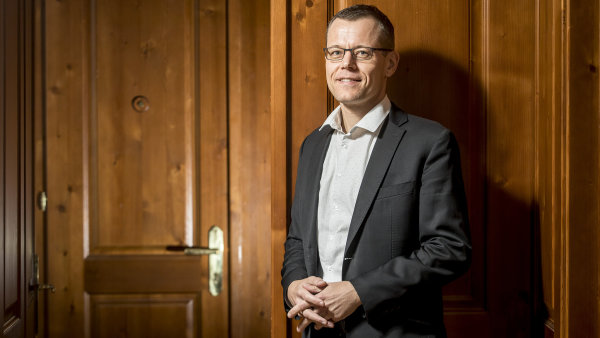In the years my essay on “Europe, Unfinished Adventure” was published by the Polity Press, dark clouds gathered over the future European Union. It has become clearer yet than it was at the time this book was written, that none of the inherited/extant political agencies, designed originally to serve a society integrated at the nation-state level, is fit for the role; none is resourceful enough to match the volume and gravity of the task. In so many countries, even the most resourceful among them, citizens are exposed day in, day out to the un-edifying spectacle of governments looking to the “markets” for permission or prohibition of doing what they intend to do – and in particular of what their citizens would dearly wish and demand them to do. It is “the markets” now who have usurped (not without connivance or even explicit or tacit endorsement and sponsorship of the helpless and hapless state governments) the first and the last word in negotiating the line separating the realistic from the unrealistic. And “markets” are a shorthand name for anonymous, faceless forces with no address: forces which no one elected and no one has empowered to call to order and keep away from mischief; no one is able to constrain, control and guide.
The gathering and well founded popular impression, but increasingly the expert opinion as well, is that elected parliaments and the governments which the parliaments are constitutionally obliged to direct, monitor and supervise, are incapable of doing their jobs. No more capable of performing their jobs are the established political parties, notorious as they are to retreat on their poetic electoral promises the moment their leaders enter ministerial offices and find themselves confronted with the prose of overwhelming while untouchable market forces and stock exchanges, well beyond the reach of the entitlements ascribed to and/or tolerated in the organs and agencies of the ostensibly “sovereign” nation-states . Hence the deep and deepening crisis of trust. The era of trust in the acting capacity of the nation-state institutions is giving way to the era of institutional un-self-confidence and popular mistrust in the governments’ ability to act.
The idea of the territorial state’s sovereignty goes back to 1555, when at a meeting called to Augsburg by the warring dynastic rulers desperately seeking an exit or at least a respite from protracted gory and devastating religious wars tearing the Christian Europe apart the formula cuius regio, eius religio (he who rules, determines religion of the ruled) was coined. The ruler’s sovereignty that formula suggested, as elaborated by Machiavelli, Luther, Jean Bodin (in his exceptionally influential De la Republique published 21 years after the Augsburg treaty) or Hobbes, meant a full, unconstrained right of Kings to proclaim and execute the laws binding whoever happen to inhabit the territory under their rule (variously described as ascendancy, supremacy, or dominance). Sovereignty meant supreme – unconstrained by external interference and indivisible – authority within a territory: since its inclusion in political vocabulary the concept of sovereignty referred to a territorially confined state of affairs and territorially fixed entitlements. As Machiavelli argued, and all the politicians worthy of that name were to reiterate since, the sole obligation of the Prince is to raison d’état – “état” – state, Staat – being admittedly, invariably territorial entities defined by their borders. As Stanford Encyclopaedia of Philosophy puts it, “sovereign authority is exercised within borders, but also, by definition, with respect to others, who may not interfere with the sovereign’s governance” – those “others” being, obviously, the authorities also territorially fixed – though located on the other side of the borders. Any attempt to meddle with the order of things established by the sovereign on the territory of his rule is therefore illegal, condemnable, a casus belli; the Augsburg formula may be read as much as the founding act of modern phenomenon of state sovereignty as well as it is read, simultaneously and necessarily, as the textual source of the modern concept of state borders.
It took however almost hundred years more of bloodletting and devastation, until 1648 and the “Westphalian Sovereignty” agreement negotiated and signed that year in Osnabrück and Münster, for the principle recommended by the Augsburg formula to take hold of European social and political reality: a full sovereignty of every ruler on the territory he ruled and over its residents – that is, the ruler’s entitlement to impose “positive” laws of his choice that may override the choices made individually by his subject, including the choice of God they ought to believe in and must worship. It was this formula that was inadvertently destined to provide, by a simple expedient of substituting “natio” for “religio”, the mental frame or stencil used shortly later to create and operate the (secular) political order of the emergent modern Europe: the pattern of nation-state - that is, of a nation using the state’s sovereignty to set apart “us” from “them” and reserving for itself the monopolistic, inalienable and indivisible right to design the order binding for the country as a whole, and of a state claiming its right to the subjects’ discipline through invoking the commonality of national history, destiny and well-being - those two constitutive elements of the pattern having been presumed and/or postulated to be territorially overlapping.
That historically composed pattern, chosen from many other conceivable, feasible and plausible ordering principles, has been in the course of subsequent centuries “naturalized” – endowed with the status of self-evidence and un-questionability – in most of Europe; as well as gradually yet steadily imposed by Europe-centred world empires on the planet as a whole in and through long series of wars waged against the local, all-too-often stubbornly resistant realities (think for instance of the crudely and bluntly artificial “national borders” of the post-colonial states barely containing tribal feuds, or the gory fate of the post-Yugoslav republics). When after the horrors of the Twentieth Century thirty-years world war the first in history attempt to establish a plausibly sustainable consensual order of the planet-wide peaceful cohabitation was undertaken, it was on the Westphalian model of sovereignty that the Charter of United Nations, of the assembly of the rulers of sovereign states called to collectively monitor, supervise and tooth-and-nail defend that state of peaceful coexistence, was founded. 2(4) article of that Charter prohibits attacks on “political independence and territorial integrity”, whereas the article 2(7) sharply restricts the eventuality of an intervention from outside into affairs of a sovereign state, however outrageous such affairs could be.
We live still in the “post-Westphalian era”, licking the as yet unhealed (perhaps incurable) wounds, which the cuius regio, eius natio rule has delivered and continues to deliver to social bodies seeking or struggling to protect and retain their integration. The process of emancipation from the shadows cast by “Westphalian sovereignty” is protracted and has been thus far painful and anything but uniform. While many powers (finances, commercial interests, information, drug and weapon trade, criminality and terrorism) have already obtained in practice if not theory the freedom to defy and neglect that phantom, politics (the ability to decide how and what for powers are to be deployed) is still smarting under its constraints. The conspicuous absence of global political agencies capable of catching up with the already global reach and capacity of powers and regain its lost control over them is arguably the main obstacle on the rough and bumpy road towards the “cosmopolitan consciousness” matching the new global interdependence of humanity.
As indicated before, the United Nations, an institution brought into being as a reaction to the war initiated by acts of aggression perpetrated by some sovereign nation-states against other nation-states’ sovereignty and coming closest to the idea of a “global political body”, has the entrenchment and tooth-and-nail defence of the Westphalian principle written into its Charter. The kind of “international” (read: inter-state, inter-governmental, inter-ministerial) politics which the UN is bound to promote and practice and the only one it is permitted and capable of promoting and practising, far from being a step on a road leading towards genuinely global politics would prove to be a major barrier set across such road, were such a road ever to be entered. On a somewhat lower but structurally homomorphic level, look at the fate of euro: the absurdity of a common currency served/sustained by seventeen finance ministers, each bound to represent and defend his/her country’s sovereign rights. The plight of euro, exposed to the vagaries of local (nation-state) politics smarting under pressures coming from two distinct, starkly heterogeneous, uncoordinated and thereby not easily reconcilable authoritative centres (nationally confined electorate and supra-national European institutions, all too often instructed to act, and acting, at cross-purposes), is just one of many manifestations of a double bind: the condition of being clenched as in a vice, immobilized and incapacitated between the ghost of the Westphalian state sovereignty on one side and the realities of the global, or less than global but nonetheless supra-national, dependency on the other. When I write these words, the debate conducted by the 27 member states of the European Union on the ways to save the euro, Greece and perhaps European Union itself has been suspended (with the possibility of grave consequences of reaching a point of no return, and a certainty of yet more collateral damages brought on Europe as a whole by another month of free-for-all presented to the stock-exchange gamblers and currency speculators) until Greek and French parliamentary elections.
To put this in a nutshell: we are still deprived of a global equivalent/homologue of the institutions invented, designed and put into operation by our grandfathers and great-grand fathers at the level of the territorial nation-state in order to secure the marriage of power and politics: such institutions as serve or at least meant and pressed to serve the coalescence and coordination of diffuse interests and opinions, their proper representation and reflection in the practice of executive organs and universally binding code of laws as well as juridical procedures. What is left to us is to wonder whether this challenge can be met and this task performed by the extant political institutions, created after all and groomed to serve a quite different (nation-state) level of human integration and to protect that level from all and any intrusions “from above”. It all started, let’s recall, from the monarchs of Christian Europe fighting to stave off the Popes’ pretences to oversee their dominions…
For a few centuries, that inherited settlement was relatively well attuned to the realities of their time, time of power and politics locked in each other company at the level of budding nation state, time of Nationalökonomie and of Reason identified with raison d’état – but this is no longer the case. Our interdependence is already global, whereas our instruments of collective action and will-expression are as before local and stoutly resisting extension, infringement and/or limitation. The gap between the scope of interdependence and the reach of institutions called to service it is already abysmal, yet day by day widening and deepening. Filling or bridging that gap is in my view the “meta-challenge” of our time - one that ought to be given the top rank among preoccupations of the residents of 21st Century: the challenge that needs to be adequately met so that other, lesser yet derivative and inalienable challenges, can start being earnestly, properly and effectively confronted.
There are reasons to interpret the initiatives taken by Schuman, Monnet, Spaak, Adenauer, and De Gaspieri immediately after the end of World War II to build a political superstructure over geographic Europe, as a reaction to a perceived fall of European self-assurance. It must have been obvious to those sober-minded activists, that Europe’s position in the world could not be sustained by the scattered, uncoordinated, often inconsistent actions of relatively small and weak, in any case not mighty enough territorial nation states. Before attempting to re-build Europe’s standing in the world, it was first necessary to reconcile its warring nation-states.
It is too early to sum up the results of this historic initiative. After all the founding fathers of political Europe had undertaken quite a task – the building of a pan-European, transnational solidarity, which would unify the historically, albeit spontaneously created and long established local solidarities, which for hundreds of years re-asserted
their identities by stirring up and stoking the fires of discord with their neighbours. There are those who doubt the possibility of such a transnational solidarity, known sometimes as “a sense of European identity.” Nation and state, they say, are conjoined once and for all, in the eyes of God and of history, and only within this framework can human solidarity be a natural attribute of human co-existence; without a historically formed national destiny, only fragile, unstable and inherently temporary alliances are possible, entered into through tedious negotiation and sensible, but unenthusiastically accepted compromise.
Jurgen Habermas2 provides the toughest of arguments against this opinion, pointing out that democratic order need not be supported by an ingrained idea of “nation” as a pre-political community of fate and destiny – that the might of a democratic constitutional state is based precisely on its potential to create and recreate social integration through the political engagement of its citizens. National community does not precede political community: it is its on-going product. The claim that a stable and self-perpetuating political system cannot exist without a consolidated ethno-cultural entity, is neither more nor less convincing than the claim that no ethno-cultural entity is capable of
consolidating and acquiring the strength to self perpetuate, without the help of an efficient political mechanism.
This is neither the place nor the time for deep speculation on the relative values of these opposing views, nor, I would add, would such a speculation be fruitful, since the dispute can, and will, only be settled authoritatively by political will and the institutional achievements of the Europeans (unfortunately so far making their importance felt mainly by their invisibility) and not by philosophical deliberations, however subtle or logical. Let’s face it – the jury is still out on the fate of political unity in Europe and it is hard to say whether there is progress or regress in the matter. After the Lisbon Treaty, which established the offices of European President and the Head of European Diplomacy, both positions were to be filled by individuals distinguished solely by their lack of clarity or authority.. (Lately I travel a great deal around Europe on lecture tours and often ask those I meet if they know the names of the European President and Head of Diplomacy, but am still waiting in vain for the answer). Not being a prophet, and not having acquired in the course of my sociology studies the qualifications for being one, I shall refrain from passing premature judgements.
I would like however, to share with you one observation that sociological diagnosis authorizes me to make. Wherever its roots or the source of its power, the stimulus to political integration and the factor necessary for progress, is a shared vision of collective mission. A unique mission, and what is more, a mission to which an existing or planned political body is particularly pre-destined, a mission furthermore, which only that body and that body alone is capable of taking on and taking on successfully. Where are we to find such a mission in our Europe of 2012?
It would appear, and luckily so, that we will find it neither in military might nor – considering the economic miracles that are happening before our very eyes from China to Latin America – even in economic power. There is a sphere in which the historical experience of Europe and her acquired skills are second to none. And since it so happened that this sphere is literally a question of life and death for the future of the planet, then the value of what we, the Europeans can bring as a legacy with which to equip the rapidly globalizing world, cannot be underestimated. A globalized world, that is to say a world of universal interdependence, needs it more than anything else, in order to aspire to what Emmanuel Kant identified as allgemeine Vereinigung der Menschheit (general unification of
mankind), and by extension also to universal, world-wide peace. This legacy is the historical shaping of European culture and our contribution to it today.
Europe was able to and did learn the art of living with others. In Europe, as nowhere else “the Other” is the neighbour next door or across the hall, and Europeans, whether they like it or not, must negotiate the terms of neighbourhood in spite of the differences and the otherness that separate them. “The situation of the European, marked as it is by multilingualism, close proximity of the Other and an equivalency of ‘others’ in a strictly limited space” can be seen as a great laboratory of new forms of human community, or else a school from which the rest of the world might acquire that knowledge and set of skills, which could make the difference between survival and demise. “To acquire the art of learning from one another and to share that skill with the rest of humanity – says Gadamer – is the task of Europe.” I would add: it is Europe’s mission, waiting to be re-forged into a vocation and a destiny.
It is impossible to overstate the importance of this task, and the importance of Europe’s determination to undertake it. Indeed it is a sine qua non in times when only friendship and robust (or in today’s parlance – proactive) solidarity are able to lend a stable structure to human cohabitation. It is in the light of those sorts of observations that we the Europeans should be asking ourselves the question: what steps are we taking to realize this vocation?
Seen from a bird’s eye view the world appears today to be an archipelago of diasporas; by their nature, diasporas pose a large question mark over the hitherto unquestioned assumptions about the inevitable correlation of identity and citizenship or habitat, of spirit and place, of a sense of belonging and territory. The whole of Europe is transforming before our very eyes, though in different regions and at different rates, into a mosaic of diasporas (or to be more precise, into a collection of overlapping and intersecting ethnic archipelagos). Without the policy of forceful assimilation, it is possible to effectively safeguard one’s national identity on one of the diaspora islands, as one would at home. Perhaps even more effectively, since this identity, as Martin Heidegger would have it, when in exile (whether as refugee, an emigre or a deportee), turns from something obvious and “given” (zuhanden) into a “task,” something requiring constant attention and energetic effort (vorhanden) And neighbouring or intermixed diasporas may also, while negotiating desirable identities, enrich one another and grow, not diminish in strength.
The work will be long, the process slow and we should not expect immediate results. But the process could be accelerated, helping horizons merge – consciously and consequently. Nothing prevents horizons from merging, nothing slows the process as much that confusion of tongues known in times past to the builders of the Tower of Babel. The European Union recognizes as “official” as many as 23 languages. But surely in the different countries of Europe people read, write and think also in Catalan, Basque, Welsh, Breton, Gaelic, Kashubian, Lapp, Roma, countless varieties of provincial Italian (I apologize for the inevitable omissions – it’s impossible to list them all...). Most of us, with the exception of a handful of outstanding polyglots, are denied access to the majority of European languages. We are all on account of this handicapped and impoverished. So much human wisdom has been passed on in stories told in unintelligible dialects. One of the most significant, though by no means the only component of this hidden wisdom is the surprising similarity of fears, dreams or experiences of parents and children, spouses and neighbours, bosses and employees, “familiars” and “strangers”, friends and foes – regardless of the language they were told in... and what a great deal we can learn from one another about concerns that we all share.
There occurs a rhetorical question: how much wisdom would be gained, what great improvement to our community or to the chances of our world mission would be achieved, if part of the Union’s funds could be used to finance the translation of literature of all its member countries, making it available in print, but also in all other commonly used media today... I am personally convinced that such a rich treasury of all that is most valuable in the experience and thought of every one of the nations making up the European Union, could possibly be the best investment for the future of Europe and the success of its mission.
The future of political Europe hangs on the fate of European culture. And that fate in turn, considering the increasingly and no doubt irreversibly diasporic composition of Europe, depends on our ability to learn the art of transforming cultural differentiation from passive to active, from something to put up with to something to celebrate, summa summarum to accept it as asset not dismiss as impediment. It is not, to be sure, a new requirement, although it is easy to forget its history or belittle and dismiss its role in the past when viewed from the perspective of our own era of nation building – with its emphasis on the homogenization of culture, and the tendency to ascribe to culture the role of haemostat as opposed to that of fertile ground for social and moral change.
It is high time to bring back to our collective memory the fact that the conflict-free, mutually beneficial co-habitation of different cultures was considered the norm for centuries and continued to be so until very recently in many parts of geographic Europe defined as “central”. If we believe Titus Livius, historian of the rise of the Roman Empire and author of Ab Urbe Condita, the rise of Rome from humble beginnings to ecumenical stature and the glory of a six centuries long Empire, was due to the consistent practice of granting all conquered and annexed peoples full citizenship rights and unqualified access to the highest offices of the expanding country, while paying due tribute to the gods whom the newcomers worshiped and granting them equal rights on the Roman pantheon. The Roman tradition of respect for different cultures and conventions, for multiplicity rather than uniformity of life forms (for solidarity achieved not despite but because of their difference), which underpinned the flowering of the Empire, were not as it turned out, to be inherited by the heirs of the Roman Empire or observed later in Europe’s history. If it does continue, in its residual form, it is only on the outskirts of the past empire, far from absolutist monarchies with their rivalries for the position of supremacy in the European balance of power.
As Western Europe plunged into a century of bloody and destructive wars of religion, sowing the seeds of hereditary animosity, a significant part of Europe east of the Elbe was able to stay away from fratricidal massacres, thereby protecting the legacy of religious (hence – avant la lettre – cultural and community) tolerance. An outstanding example of an alternative to the Westphalian system was the Polish Lithuanian Commonwealth, a Polish-Lithuanian state, known for its generosity in granting self-governing powers and independent cultural identities to ethnic, linguistic and religious minorities spread throughout its territory, thereby avoiding bloodshed and other religious
atrocities which befell their other, less fortunate neighbours to the West, whose wounds then took centuries to heal. However, partitions effected by its voracious neighbours – dynastic monarchies of overt or covert national ambitions – dealt a fatal blow to this unique Polish-Lithuanian Commonwealth. Cultural autonomies, fortunate majorities and unfortunate minorities alike, were subjected to forced Russification in the East, and a no less, perhaps even more ruthless Germanization to the West, supplemented by intermittent religious wars such as the anti catholic offensives of Orthodox and Lutheran churches. Only areas to the South, annexed by a monarchy aspiring to principles close to those of the Polish Lithuanian Commonwealth, escaped a similar fate.
History books credit modern history ex post facto with promoting the principles of tolerance, yet there is no doubt that cultural intolerance was an inseparable companion of the two major and tightly intertwined modern endeavours – that of nation building and that of state-building. National languages called for the stifling and delegitimization of local dialects, state churches demanded the suppression of religious “sects”, and “national memory” called for the bannihilation of local and collective memory. Only one great European monarchy, close to the geographical center of Europe, resisted this popular tendency right up to the breakout of the First World War. This was the its ethnic groups and cultures, and governed from Vienna, at that time a cultural hothouse and a breeding ground of the most fascinating and far-reaching contributions to European philosophy, psychology, literature, music, visual and dramatic arts. It is no coincidence, that it was there that a theory, or rather a programme of political integration based on the postulate of national/personal autonomy (personlich Prinzip as the most famous of its proponents, Otto Bauer will call it) took root. Referring to Karl Renner’s essay/manifesto Staat und Nation, the Marxist writer Otto Bauer’s book Die Nationaliatenfrage und die Sozialdemokratie, published 8 years later, presents the said postulate as a way of “organizing nations not into territorial bodies, but into free associations of individuals”, that is to say, separate, or free a nation’s existence from its dependence and territorial prerequisites, and political integration from national identities. A similar principle was formulated and promoted the Bund member Vladimir Medem referring for a change to the experiences of Polish Lithuanian Commonwealth, in an essay published in Yiddish in 1904, entitled Socialdemocracy and the National Question. Medem proposed amongst other things, that “citizens of given nations unite into cultural organizations practicing in every region of the country” and that“ every citizen of the State belong to a national group, whose choice be left to his personal preference, rather than controlled by any administrative body.”
Those postulates and hopes found themselves amongst the casualties of the 1st World War. At the gathering of victors in Versailles, Woodrow Wilson, updating the Westphalia agreement of 1648, and raising its ideas to the rank of general rule, proclaimed the indivisible sovereignty of a nation on its territory with a universal principle of humanity (something which incidentally was to concern Hannah Arendt, fully aware that “bands of mixed populations” common in the Balkans, but scattered also throughout Central/Eastern Europe, were utterly unsuited to principles such as ein Volk ein Reich). But even Wilson’s ignorance, or arrogance could not prevent another, admittedly half-hearted and short-lived attempt to find a form of co-existence better suited to the reality of overlapping and intersecting archipelagos of ethno-cultural diasporas, in the form of Yugoslavia.
And yet even that attempt was narrowed, without much success, to the perimeters of Bosnia – a region of long-lasting peaceful co-existence of many ethnic and religious groups, which nevertheless required a similarly mixed environment to survive. This environment destroyed the viciousness of ethnic cleansing initiated not least through the fault of the highest European authorities. It was Helmut Kohl after all, who in a moment of carelessness disastrously blurted out that Slovenia deserved independence because it is ethnically homogenous – a statement interpreted (undoubtedly against his intentions) as official license to expel and massacre...
It fell to all of us Europeans to live in an era of advancing and possibly unstoppable diasporization, thus with the prospect of all regions of Europe transforming into “bands of mixed populations”. According to the latest demographic predictions, the numbers of inhabitants of the European Union (currently around 400 million) are set to shrink in the next fifty years to the order of 240 million, which would effectively render obsolete the kind of lifestyles we are accustomed to and are interested in maintaining.
Demographers tell us furthermore, that unless at least 30 million foreigners settle in Europe, the European system will be incapable of surviving. If there is any truth in these predictions, we must prepare ourselves for the possibility of this situation (brought to a boiling point and tragic consequences by the imposition of the principle of ein Volk, ein Reich) may well emerge in Europe as a whole. All of us, I repeat, are changing, at different speeds but inexorably, into what Hannah Arendt called “bands of mixed populations.”
“Pro-active” responses to the emerging situation are however few, sluggish and painfully slow, provoked by pressure or blackmail by occasional flaring up of tribal sentiments, they are offered with no particular enthusiasm; and yet the future of Europe’s political and cultural existence depends on the re-thinking and reversing of the trends of the last four hundred years of European history. It is high time to consider whether the past of geographically central Europe might not be the future of European politics and culture. In fact, might it not be the only future capable of safeguarding our European civilization?
- První 2 měsíce za 40 Kč/měsíc, poté za 199 Kč měsíčně
- Možnost kdykoliv zrušit
- Odemykejte obsah pro přátele
- Všechny články v audioverzi + playlist
 Přidejte si Hospodářské noviny
mezi své oblíbené tituly
na Google zprávách.
Přidejte si Hospodářské noviny
mezi své oblíbené tituly
na Google zprávách.





